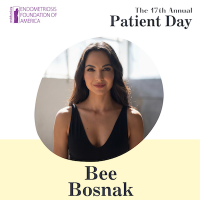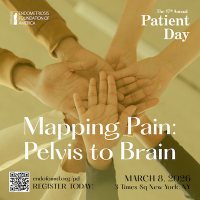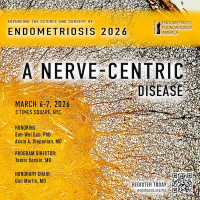Principal Investigator:
Dr. Leslie V. Farland, ScD
Key Personnel
Stacey A. Missmer, ScD, Co-Investigator
Summary
Endometriosis is a painful and debilitating gynecologic condition defined by the presence of endometrial-like tissue outside the uterus. This disorder affects 6-10% of women of reproductive
age in the United States (7) yet its etiology and relationship to the risk of other chronic disease states remains unclear (6). There is increasing evidence suggesting that women with endometriosis may have a greater risk of cardiovascular disease (8, 9). To our knowledge, no prior study has investigated the relationship between endometriosis and stroke or type 2 diabetes. Women account for the majority of deaths from stroke each year, with stroke being the third leading cause of death for women in the United States (10, 11). Additionally, approximately 25%of adults age 65 and older are diagnosed with type 2 diabetes. Given that approximately one in ten women experience endometriosis, the public health impact of understanding the relationship between endometriosis and long-term cardiometabolic health demands pursuing research in this area. The proposed project overcomes limitations that have challenged previous studies of endometriosis and long-term health outcomes and leverages long-term longitudinal data from an established cohort, with detailed information collected on endometriosis, stroke, type 2 diabetes, and potential confounding and intermediate factors. Understanding the relation between endometriosis and cardiometabolic conditions may increase our understanding of disease etiology, influence screening recommendations, and ultimately reduce excess morbidity and mortality among the substantial proportion of women experiencing endometriosis worldwide.
Bio
Dr. Farland is an Assistant Professor in the Department of Epidemiology at the University of Arizona Mel and Enid Zuckerman College of Public Health. She has training in Biology (B.A. University of Chicago) and Reproductive Epidemiology (Sc.M, Sc.D. Harvard T.H. Chan School of Public Health). Dr. Farland’s research focuses on three major areas: i) the intersection between women’s reproductive health and chronic disease risk, ii) etiology and risk factors for endometriosis, and iii) disparities in infertility care and fertility treatment utilization. Dr. Farland has published over 35 articles on women’s reproductive health in some of the field’s top journals including BMJ, Human Reproduction, Obstetrics and Gynecology, and Fertility and Sterility with ten manuscripts focusing on endometriosis etiology, reproductive characteristics (endometriosis and infertility), and chronic disease outcomes including hypertension and cancer (1-6). As principal investigator, Dr. Farland will lead the investigation into endometriosis and cardiometabolic health outcomes. For this proposed investigation, Dr. Farland will design the analysis, lead interpretation of the study results, and draft the manuscripts and professional conference submissions. Given her experience with women’s health research, she has the skills and experience to lead this project on endometriosis and risk of stroke and type 2 diabetes.








